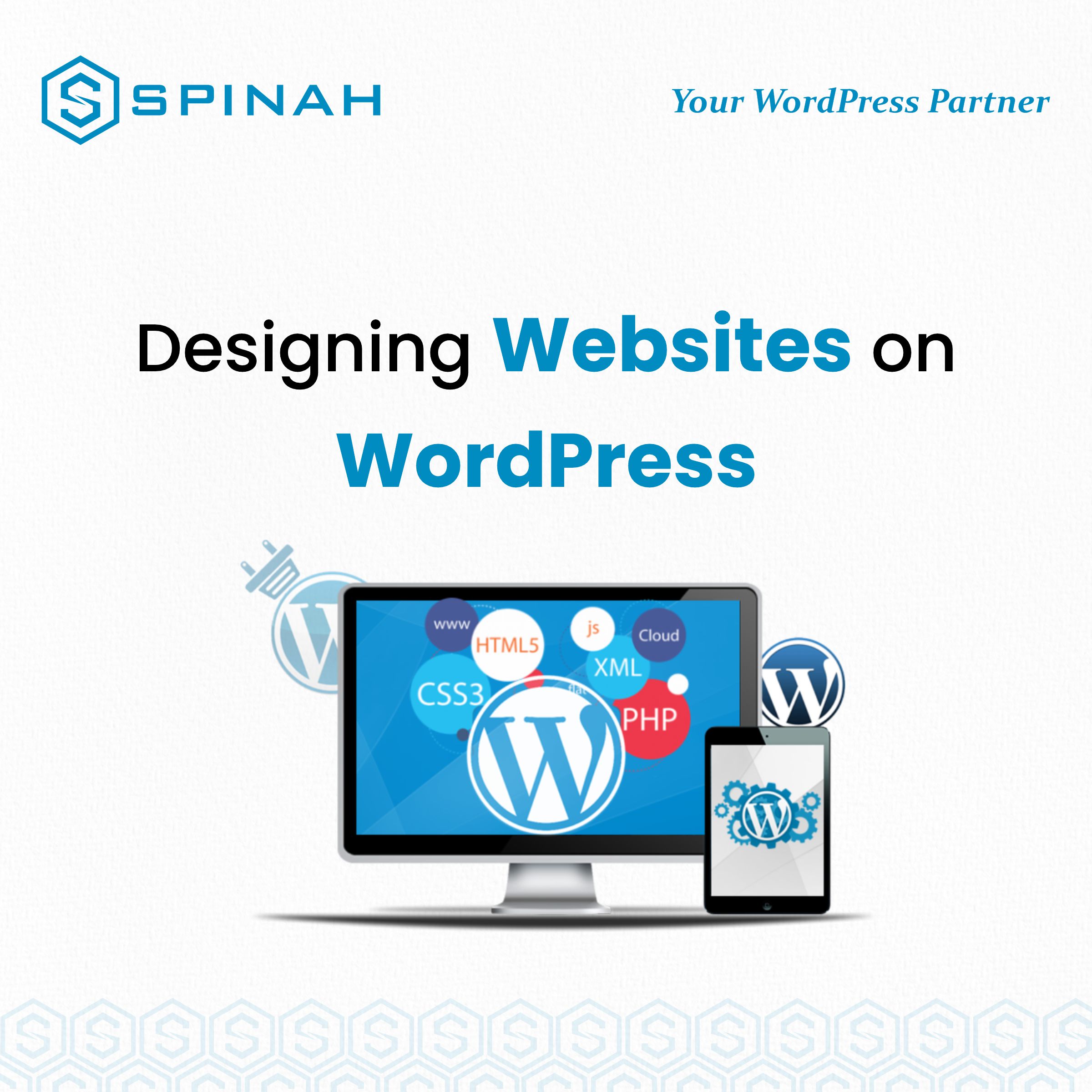When it comes to creating a website, one of the most important decisions you’ll make is choosing a hosting service. Two of the most popular options are WordPress hosting and web hosting. While both can be used to host a website, there are some key differences between the two that could make one a better fit for your needs than the other.
In this article, we’ll take a side-by-side look at WordPress hosting and web hosting to help you understand the pros and cons of each so you can make an informed decision. We’ll explore topics such as ease of use, cost, performance, and security to give you a comprehensive understanding of what you can expect from each type of hosting service.
So whether you’re building a blog, an online store, or a professional website, this comparison will help you choose the right hosting solution for your project.

What Is WordPress Hosting And Web Hosting
WordPress hosting is a type of web hosting that is specifically designed to accommodate websites created with WordPress, the most popular content management system (CMS). It can be installed on a variety of hosting platforms, including VPS WordPress hosting and cloud WordPress hosting.
This makes sure that the site works well and is compatible with other sites. With WordPress Hosting, users can get access to special features such as a one-click installation of the WordPress software, automated updates, and increased security.
Web hosting on the other hand is the process of providing web space on an internet server to store files, applications, and websites. It allows individuals and businesses to make their websites accessible to others over the internet.
Web hosting companies provide various types of hosting plans, including shared, VPS, and dedicated servers. All of these are excellent options designed to accommodate different user needs and budgets.
Comparison of Features between WordPress Hosting and Web Hosting
WordPress Hosting and Web Hosting are two different types of hosting that cater to different types of websites. Business owners and website developers must understand the differences between the two before deciding which one to choose for their website.
One of the main differences between WordPress hosting and web hosting is the type of software that is used to build and manage the website. WordPress hosting is specifically designed for websites that are built using the WordPress content management system (CMS), which is a popular platform for building websites due to its user-friendly interface and extensive range of customizable features making it an excellent choice.
Web hosting, on the other hand, is the most basic type and is more generic and can be used to host any type of website, regardless of the platform or CMS it is built on.
Another key difference between WordPress hosting and web hosting is the level of performance and optimization that is provided. WordPress hosting is designed to work best with WordPress websites and allows migration service and can load pages faster and perform better overall than web hosting.
This is because WordPress hosting is designed to work seamlessly with the WordPress CMS and can automatically handle tasks such as caching and database optimization to improve the speed and performance of the website. Web hosting, on the other hand, is not optimized for any particular platform. Instead, it is up to the owner of the website to make sure it works well.
When it comes to price, WordPress hosting is usually more expensive than web hosting because it offers more optimization and support. But for some users, the improved performance and ease of use of a hosting service made just for WordPress websites may be worth the extra cost.
In the end, whether you choose WordPress hosting or web hosting will depend on your website’s needs and goals, as well as your budget and level of technical knowledge.
Here Are Some Pros and Cons of Using WordPress Hosting:
Pros:
- Easy to use: WordPress is very user-friendly, even for those who are not tech-savvy and is a better choice for beginners. It has a simple interface that makes it easy to set up and manage your website.
- Customizable: WordPress offers a wide range of themes and plugins that allow you to customize your website to meet your specific needs.
- SEO-friendly: WordPress is set up to work well with search engines, which can help people find your site in search results.
- WordPress is always adding new features and fixing bugs to make sure your website is safe from cyber threats.
Cons:
- Limited control: With WordPress hosting, you may not have as much control over your website as you would with a self-hosted solution.
- Dependent on third parties: The speed and security of the server that hosts your website can affect how well it works.
- Cost: While there are free options available, many premium themes and plugins come with a cost. This can add up over time and increase the overall cost of your website.
- Limited ability to grow: If your website gets a lot more traffic, you may need to switch to a more expensive hosting plan.
Pros and Cons of Web Hosting
Pros:
• It costs less than WordPress hosting because it doesn’t include features that only work with WordPress.
• More options for hosting different platforms and applications, like eCommerce sites or content management systems other than WordPress.
• Compatible with the most popular web development tools, including HTML, CSS, JavaScript, and PHP
Cons:
• There are no automatic backups or security updates, so it’s up to the website owner to make sure their site is safe.
• It isn’t as fast or optimized for performance because it doesn’t have any features that are unique to WordPress.
• There is no automated way to move a website, so switching hosting providers can be harder and take more time.
• There are few design customization options because it lacks specialized WordPress tools and services.

Who Needs WordPress Hosting
WordPress hosting is specifically designed for websites that are built using the WordPress content management system (CMS). WordPress is a popular and powerful platform that makes it easy to create and manage a website, and it’s used by millions of individuals and organizations around the world.
There are several types of users who might need WordPress hosting:
- Bloggers: WordPress is a popular choice for bloggers because it’s easy to use, and it offers a wide range of customization options through its vast selection of themes and plugins.
- Business website owners: Many small businesses use WordPress as it is a cost-effective solution for creating a professional-looking website. The platform’s themes and plugins make it easy to add features such as e-commerce, contact forms, and social media integration.
- Online Marketers: WordPress can be used to create effective online marketing campaigns, such as landing pages and funnels. It’s easy to create and A/B test different versions of a web page, thanks to its vast plugin options.
- Developers: WordPress is a great option for developers as it’s easy to customize and extend through its flexible plugin architecture. It’s also easy to manage multiple sites with a single WordPress installation.
- Non-profit Organizations: WordPress is a popular choice for non-profits because it’s free, easy to use, and offers a wide range of customization options.
It’s important to note that WordPress hosting is not the only option for hosting a WordPress website, but it’s a good option if you want a hosting environment that is optimized for WordPress and can offer features such as automatic updates, backups, and enhanced security. Normal hosting plans can also be used to host WordPress sites, but they may not be set up or optimized for WordPress.
How to Choose the Best Hosting Option for Your Business
Choosing the best hosting option for your business can be a difficult task, but by taking a few key factors into account, you can find a hosting solution that will meet your needs.
Determine your needs
Before choosing a hosting service provider, you should Compare hosting packages from different providers, take note of any additional costs beyond the initial price and evaluate your business needs such as the size of your website, expected traffic, and the types of applications you will be running. This will help you decide between shared plans, cloud servers, or dedicated customer options.
Assess different hosting options
Assessing different hosting options is an important step in choosing the best hosting option for your business. There are various hosting service providers available in the market, each offering different hosting plans with varying features and benefits.
You should consider factors such as the need for a knowledge database, the ability to support high-performance websites, and any extra services that may be required.
One popular hosting option is a shared plan, which is a cost-effective option for small businesses. In a shared plan, multiple websites share a single server, which reduces the cost of hosting. However, shared plans may have limited resources and may not be suitable for high-traffic websites.
Consider uptime and reliability
Considerations like uptime and dependability are crucial when selecting a server solution for your company. For excellent solutions and a satisfying user experience, look for a provider who promises a high uptime percentage. Beginners should take into account providers with user-friendly control panels and simple setting procedures. Fast and dependable backups, protection, and customer service should all be part of the user experience.
Evaluate the customer support
Evaluating customer support is an important step when choosing the best hosting option for a business. There are several services that can be considered, such as software updates and server space, but it’s important to make sure the customer service team has adequate knowledge of cloud hosting support to handle any issues in a timely manner.
Having the right customer support team in place is essential when opting for IT services; this helps ensure that any technical issues can be handled promptly, so businesses stay up and running with ease.
Compare pricing and scalability
Compare the pricing and feature sets of different hosting providers to find the best value for your business. Also, make sure that the hosting provider you choose can easily upgrade your account as your business grows.
Security
Security is a critical factor to consider when choosing a hosting option for your business. The host environment, whether it’s a shared or dedicated server, must have adequate security measures in place to protect your website and customer data from common threats such as hacking, malware, and DDoS attacks.
Consider the location of the servers
The location of servers is an important factor to consider when choosing a hosting option for your business. Choosing a provider with servers located in close proximity to your target audience can help improve loading speeds and overall website performance.
In addition, the level of experience of the hosting provider and their team should also be considered. A provider with experienced and knowledgeable professionals can offer additional features and services, such as regular backups and security updates, to help ensure the optimal performance and security of your website.
Final Thought
Whether you’re a small business or tech startup looking for ease of setup, a blogger looking for an affordable rate, a freelancer developing websites who wants to give their projects the best web hosting possible, or even a domain name registrar who needs reliable and secure hosting for clients; WordPress Hosting and Web Hosting can each offer great solutions.
It all depends on the type of plan that is relative to your specific situation and technical needs. By understanding the differences between these two types of hosting plans, it’s easier to make an educated decision when choosing the right fit that helps power your website.
FAQs
It depends on your website’s needs and goals. WordPress hosting is made for websites built with the WordPress content management system (CMS). Web hosting is a more general option that can be used to host any type of website, but it may not offer as many features or performance enhancements as WordPress hosting.
Yes, there are several options for free WordPress hosting. Some popular options include:
. WordPress.com
. Hostinger
. 000webhost
. InfinityFree
1. Shared hosting: This is the most basic and economical type of web hosting.
2. VPS (Virtual Private Server) hosting: VPS hosting offers a more powerful and flexible option than Shared hosting.
3. Dedicated server hosting: Dedicated hosting is the most powerful and expensive type of web hosting. With dedicated hosting, you have an entire physical server dedicated to your website.
It’s important to think about things like cost, uptime, security, customer service, and scalability when choosing a web host. It’s also important to look at the specific features offered by the provider and choose one that meets your specific needs.
Costs for web hosting can vary a lot depending on the type of hosting, the features it offers, and the company that offers it. Shared hosting plans can be as low as $3 per month, while VPS and dedicated hosting can cost several hundred dollars per month. Cloud hosting costs could vary based on resources and usage.
Making backups, moving files, altering DNS records, and setting up your new hosting are just a few of the stages involved in changing the hosting for your website. Depending on the methodologies used by your current and new providers, the steps and procedure might be different. For an additional fee, some providers will help you or handle the procedure on your behalf.











